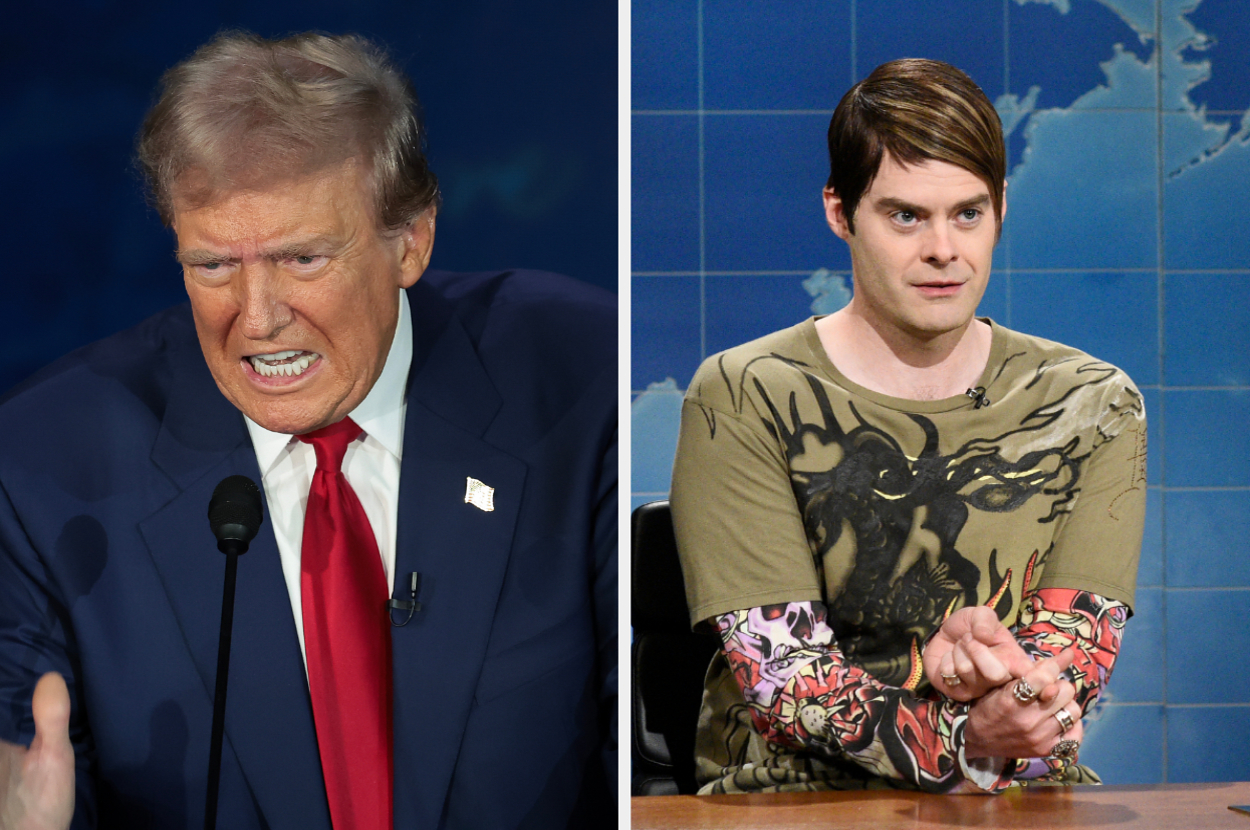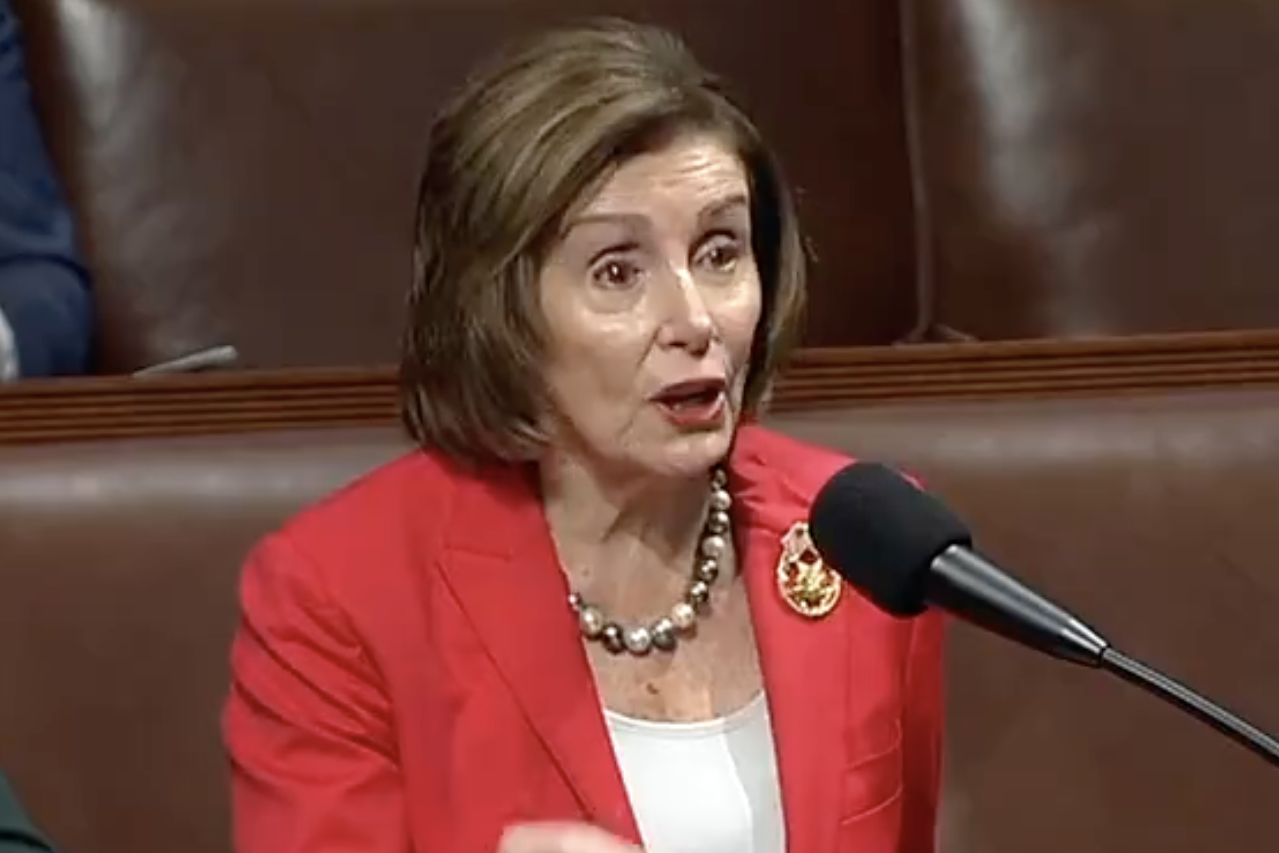“I Notice All Emergency Exits”: We're An American And A Brit. Here's How We Grew Up In Relation To Guns
The thing is, the ubiquity of school shootings is a uniquely American phenomenon. So, we took two BuzzFeeders — a Brit and an American — to compare how normalized the terrors of gun violence are in the states.
On the British side is me, Natasha Jokić. I was born and raised in Reading, England, just outside of London. I left England when I was 22 to get my Master’s degree at New York University, and have been in the city ever since. I’m also married to an American.
And then there’s me, Alexa Lisitza, a Black American girl born and raised in a Chicago suburb.
At 18, I moved to Washington, D.C. to attend Howard University, where I majored in English Lit, minored in secondary education, and obtained my teaching license. I lived and worked in D.C. for two years after college before moving back to Chicago.
Let’s chat about all things 2024 Election
Here’s how our answers compared:
What’s your first memory of a mass shooting?
Brit: Honestly, I have no idea. My first memory of mass murder was the 7/7 bombings, but those were with homemade bombs. The Cumbria shootings happened when I was 14. I remember some of my older sister’s friends being interested in Bowling For Columbine, it didn’t feel like an especially local issue.
American: Growing up in a Chicago suburb, hearing adults talk about gun violence was common — sometimes the conversation was related to gangs and other times they surrounded escalated spats on the train or domestic issues. But the first mass shooting I was old enough to remember feeling a tense air in the room over was in 2003 when a former
auto supply warehouse worker shot and killed six people before committing suicide
. I was 8 years old.
My uncle, who was living with us at the time, also worked in a warehouse. He and my mom sat in our living room, sharing cautious words about noticing who’s around you and questioning whether he should take the following day off to avoid a potential copycat.
When was your first active shooter training?
Brit: I worked for NBCUniversal in London after the Charlie Hebdo shootings happened in Paris. We had an armed intruder training then; I would have been around 20 years old. I remember some of my coworkers beforehand joking they could take on an attacker, I had been raised with enough sense to think that was a stupid thing to say.
American: The better question is: Was there any year in your schooling when you didn’t have active shooter drills? The answer is no.
Between elementary and middle school, active shooter drills were yearly and usually performed in the same week as tornado drills. So, within a few days of each other, we’d go from locking the door and pressing our knees to our chests while sitting in a tight, 25-student-deep ball somewhere in the back corner of a classroom, to tucking our heads down against the lockers and covering our skulls with our arms.
By the time I reached high school, yearly active shooter drills upticked to twice a year, while tornado drills remained once.
When did you first see a loaded gun?
Brit: I’m not sure I ever saw a loaded gun in England — a house neighboring where l once lived was raided, but I don’t remember much beyond the police having flashlights. I’ve never held or shot one. I used to go to Florida as a kid and see guns in the Bass Pro Shops and think they were funny — I don’t think that now. It still freaks me out to walk past members of the NYPD with loaded guns casually strapped to them; we don’t have armed police in the same way in England.
American: On the hip of the officer meant to serve as security in school.
Were school shootings something you were concerned about?
Brit: No. I was harassed by another student to the point of the police being involved when I was in my undergrad in Bath, UK. He threatened to hack me with a chainsaw. That was stressful enough without guns being involved, which is an odd thing to be grateful for. Knife crime was something I was more concerned about. There were incidents in my hometown, and I was once threatened in London, but the survival rate for a stab wound versus a gunshot is at least far higher.
American: Strangely enough — and to be clear, it is sad that this is strange to me — I wasn’t concerned about school shootings until I was in college. Perhaps this is because of maturity; perhaps this is because of the tragic Parkland shooting around the same time; or maybe it was because of the tension at my baby sister’s high school, where swastikas were being airdropped to students during assemblies shortly after a Black teacher’s name was found graffitied next to a drawing of a noose. By then, schools had stopped feeling like a safe place.
Have you ever been involved in a school shooting?
Brit: No. When I went to NYU, we had an active shooter training our first day. Me and the other international students joked, “Welcome to America.” A few weeks later, I was at a bar and heard a loud bang down the street. When I came out of the bar, the street had been sectioned off by the police. It didn’t occur to me or any of the other international students there that a gun may have been involved before we saw the flashing lights.
American: My junior year of college at Howard University, I remember being incredibly stressed about a paper for one of my courses. I rarely went to any professors’ office hours, but on October 17, I walked into the education building on our main campus.
While speaking to my professor, my phone kept going off. I apologized and told her I’d put it on silent. My partner at the time had sent no less than 10 text messages, which was odd but it felt rude to check.
Before I could worry about the messages, the front desk lady for the building poked her head into our room. She told us, “There’s an active shooter on this part of campus. We’ve locked the doors.”
The lock to my professor’s office was broken, so we huddled into the front desk lady’s office instead, where we camped out together for the next two hours. I messaged my mom. I messaged my older sister. And, in hindsight, I can now laugh at the conversation the two older women whispered about while they attempted to distract themselves. Eventually, we were given an all-clear.
How has the rise in school shootings in the US affected how you move throughout your daily life?
Brit: I think being away from it for so long and now living in a state with strict gun control has meant that it still hasn’t fully sunk in. If I hear a loud noise, my first thought still isn’t gun. On an emotional level, it’s challenging. It’s heartbreaking to have to see news about children dying and then go about your job as a journalist. But that’s nothing compared to the lives of people who are directly affected.
American: While it’s not a consuming thought, I never enter a movie theater, concert, or venue without glancing around and noticing where any emergency exits are. Likewise, it’s harder to enjoy events when someone may knock something over, and the loud noise triggers people’s fight or flight.
What are your thoughts on gun control now?
Brit: I don’t see the need for guns in the vast majority of cases. They should be specialized and rare, not produced in the hundreds of millions each year. Much of the so-called debate around them strikes me as an absurd conversation. I have been the victim of crimes, yet I would never own a gun. I don’t want to make England seem like it’s a peaceful paragon of non-violence, it’s not, but at least firearms aren’t the leading cause of death for children and teenagers.
American: I wish politicians and media would stop referring to gun reform as “gun control.” It’s semantics, but that slight change in wording seems to raise a defense, and people feel as though you’re trying to take something away from them, a.k.a, “control” them.
Before switching careers, I taught high school students. When I got my license, I had to undergo a background check, get fingerprinted, obtain said license, maintain said license, and receive training. It feels a bit unfair that the guns plaguing schools can be obtained without the same checks and balances.
How do you react to politicians who say that when school shootings occur, we should focus on thoughts and prayers instead of politics?
Brit: It feels like slapping ourselves in the face over and over again going, “Well, there’s nothing we can do about that.” Yes, you can!
American: My answer is simple: Being proactive about gun violence could save a family from needing to be prayed for in the future.


